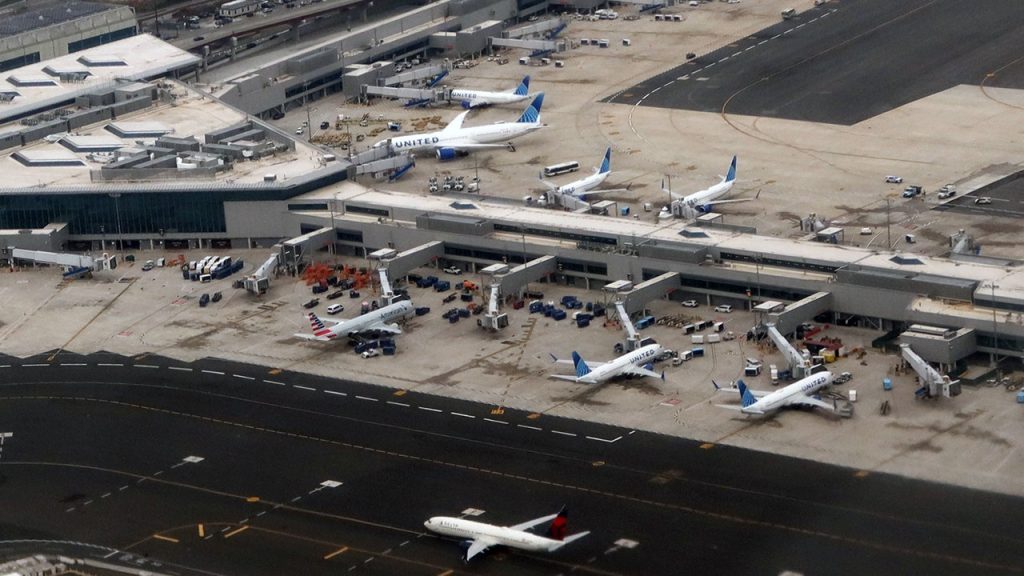A Harrowing Flight: The Case of Luis Vaquero
A New Low in Airline Behavior
On a recent flight from Miami to Newark Liberty International Airport, a disturbing incident unfolded that has left passengers and crew members shaken. Luis Vaquero, a 27-year-old man from Passaic County, New Jersey, is now facing federal charges after allegedly unleashing a torrent of threats, harassment, and physical intimidation aboard the flight. What began as a routine journey quickly escalated into a harrowing experience for everyone on board, with Vaquero’s behavior reaching alarming levels. Federal prosecutors have described the incident as one of the most egregious examples of unruly passenger conduct in recent memory, highlighting the growing concerns over safety and respect in the skies.
The Escalation of Threats and Harassment
The trouble began shortly after takeoff, when Vaquero started threatening and harassing multiple passengers. Among the alleged victims were a disabled minor and a group of Jewish passengers, whom Vaquero reportedly mocked. His behavior only worsened as the flight progressed. When a flight attendant declined to serve him alcohol after the designated beverage service window had closed, Vaquero responded with a chilling warning: "You better watch out, s— is gonna happen to you." These actions set the tone for what would become an increasingly volatile and dangerous situation.
Upon landing at Newark Liberty International Airport, the cabin crew alerted law enforcement, prompting Vaquero to become even more aggressive. After hearing the announcement that the plane was waiting for law enforcement to arrive, Vaquero forced his way to the front of the aircraft and began banging on the cockpit door. He demanded that the pilot come outside, shouting obscene and threatening remarks. When a flight attendant attempted to intervene, Vaquero directed his anger at her, yelling, "I will really break your f—– jaw, n—-!" He also screamed at the captain, "I wanna see that f—– captain! Come outside, you b—- a– n—–!" This confrontational behavior continued even after the pilot emerged, with Vaquero standing just six inches away from him and issuing further threats until law enforcement intervened.
The Charges and Potential Consequences
Luis Vaquero has been charged with one count of interference with flight crew members and attendants by assault or intimidation, a federal offense. He appeared in court on Monday and was released pending further proceedings. If convicted, Vaquero could face up to 20 years in prison and a fine of $250,000. The severity of these potential penalties underscores the seriousness with which federal authorities are treating this case. Acting Special Agent in Charge Terence Reilly of the FBI’s Newark office emphasized that such behavior will not be tolerated, stating, "The harrowing flight and other similar incidents onboard airplanes recently are creating tension and fear for fliers and crew members. FBI Newark has a warning for those who think it may not be a big deal—they’re breaking federal law, and they will be brought to justice."
The Broader Context of Airline Safety
This incident is part of a disturbing trend of increased unruly passenger behavior on flights. Over the past few years, there has been a significant rise in reports of passengers threatening, harassing, or even physically assaulting crew members and fellow travelers. These incidents have drawn widespread attention, prompting airlines, regulators, and law enforcement to take stronger measures to address the issue. The case of Luis Vaquero serves as a stark reminder of the potential dangers of unchecked aggression aboard aircraft and the need for swift and decisive action to ensure the safety of everyone on board.
The Importance of Accountability and Respect
While the vast majority of flights occur without incident, cases like Vaquero’s highlight the importance of maintaining respect and decorum in the confined environment of an airplane. Passengers and crew members alike deserve to feel safe and secure during their journey. The actions of individuals like Vaquero not only disrupt the travel experience but also create a climate of fear and tension that can have lasting effects on those involved. By holding offenders accountable and enforcing strict consequences for unacceptable behavior, authorities are sending a clear message that such conduct will not be tolerated in the skies.
Conclusion: Ensuring Safe and Respectful Air Travel
The harrowing experience aboard the Newark-bound flight is a stark reminder of the challenges faced by the aviation industry in maintaining order and safety at 30,000 feet. While incidents like this are rare, they underscore the need for heightened vigilance and stronger measures to prevent similar occurrences in the future. Whether through enhanced enforcement, improved passenger screening, or increased public awareness campaigns, addressing this issue requires a multifaceted approach. By fostering a culture of respect and accountability, we can work toward ensuring that air travel remains a safe and enjoyable experience for all.












